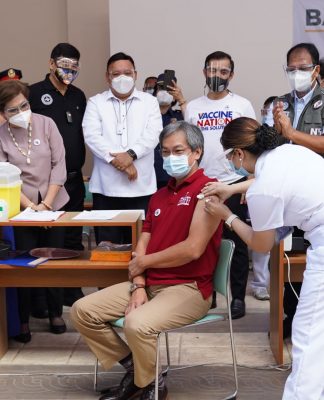SOCIAL media use has gone beyond leisure and entertainment.
Networking sites like Facebook and Twitter have become useful platforms in information dissemination especially during calamities, social media denizens noted in “The Social Good Summit” organized by online media outfit Rappler last Sept. 22 at Greenbelt 3 in Makati.
Nina Terol-Zialcita of the People Power Institute said mainstream media are “no longer the sole gatekeepers.”
But social media speeds up information-gathering for journalists, said Howie Severino of GMA News Online. “The traditional new gathering is that you send a crew to an event and by the time you get there it’s over,” he said. “These days, we get these photographs in real-time.”
But this requires verifying content and making sure it is original. “We developed a protocol for verification and we refined this after learning a few lessons the hard way,” he said.
This was echoed by ABS-CBN news anchor Ces Drilon, who cited an instance in which she retweeted a picture taken during storm Ondoy in 2009, thinking it was taken during the recent monsoon-induced flooding.
Information platform
Social media use is not only for journalists but for government agencies as well.
Yves Gonzalez, Manila Metropolitan Development Authority (MMDA) Traffic Discipline Office head, said the power of social media platforms in collecting information is “priceless.”
“What we lack in infrastructure, what we lack in cameras, what we lack in manpower, what we lack in radios, is being filled up by the power of people, by the citizenry,” he said, citing incidents in which citizens sent reports to MMDA through social media platforms.
Through crowd-sourcing, MMDA has the opportunity to address problems and monitor the public’s response to its projects.
“MMDA uses [social media] not just for information coming out, but most importantly for information coming in,” Gonzalez said.
For Mahar Lagmay, head of the Department of Science and Technology’s Project Nationwide Operational Assessment of Hazards (Noah), “receiving timely information” is one way to address disasters.
“[W]hen scientists deliver … information, they need to be disseminated,” he said. “One way to do that is to communicate through various social media platforms and also using traditional media platforms.”
Project Noah is a website mapping out flood-prone areas and providing real-time information from rain gauges and Doppler radars all over the country.
Faster Internet needed
In late 2010, the Philippines was declared the world’s social media capital, despite poor Internet service. Tonyo Cruz of NetBooster, a marketing agency, said bad Internet connection is the “elephant in the room” as it hampers journalism.
“We cannot have social media for social good, technology for social good, startups, digital experts, if our digital companies are saddled by slow, expensive, bad Internet services,” Cruz said.
“Internet is not a commodity. [Internet access] is a public utility,” he said.
The Internet must always help businesses, the government, and the public achieve their goals, he added.
“We challenge President Aquino to achieve in the next two years universal Internet access for the Philippines, starting with the all national and local government offices, public schools, public hospitals, state colleges and universities,” he said. “If we’re talking about social good, the first social good that the government could do is to not leave any Filipino behind.”
The Social Good Summit is a yearly event organized by Rappler and TweetUpManila, part of a global movement led by Mashable to observe United Nations’ Week.
Fourteen speakers from different fields were given 10 minutes to deliver their ideas on how social media can address pressing problems in society.
Among those who attended were Jane Uymatiao (citizen advocate), Carlo Ople (TV5), JV Rufino (Inquirer.net) and Josh Villanueva (Rappler). Maria Luisa A. Mamaradlo and Cez Mariela Teresa G. Verzosa
















